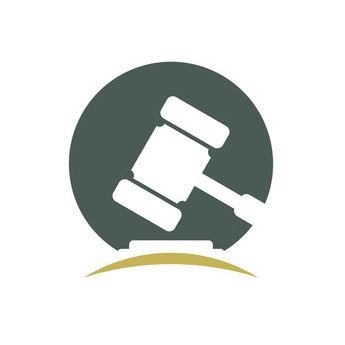Best Arrests & Searches Lawyers in Guatemala
Share your needs with us, get contacted by law firms.
Free. Takes 2 min.
Or refine your search by selecting a city:
List of the best lawyers in Guatemala
About Arrests & Searches Law in Guatemala
The legal framework governing arrests and searches in Guatemala is primarily rooted in the country's Constitution and the Penal Procedural Code. These establish the principles and procedures that law enforcement must follow when arresting individuals or conducting searches. The aim is to protect the rights and freedoms of individuals while enabling law enforcement to perform its duties effectively. The laws stipulate clear guidelines to prevent arbitrary arrests and ensure that searches are conducted only under lawful circumstances, often requiring a judicial warrant unless exigent circumstances exist.
Why You May Need a Lawyer
There are several situations in which an individual in Guatemala may require legal assistance regarding arrests and searches. If you are arrested, it is crucial to ensure that your rights are upheld during detention and any subsequent proceedings. Legal representation can also be necessary if you believe a search conducted on your premises was unlawful or without proper authorization. Additionally, if you have been charged with a crime following a search or arrest, having a lawyer is essential to navigate the criminal justice system, prepare your defense, and seek a just outcome.
Local Laws Overview
Guatemala's legal system includes several critical components related to arrests and searches:
- Presumption of Innocence: Individuals are considered innocent until proven guilty, and this influences how arrests and searches should be conducted.
- Warrant Requirement: Searches generally require a warrant issued by a judge, except in situations where immediate action is necessary.
- Right to Legal Counsel: Arrested individuals have the right to consult with a lawyer and must be informed of this right upon detention.
- Right to Silence: People have the right not to incriminate themselves and should be informed of this right during custody.
- Timely Presentation: The law mandates that detainees must be brought before a judge promptly to assess the legality of the detention.
Frequently Asked Questions
What should I do if I'm arrested in Guatemala?
Remain calm and ensure you are informed of your rights. Demand to consult with a lawyer and refrain from making statements without legal counsel present.
Can the police search my home without a warrant?
Typically, the police need a warrant to search your home, except in exigent circumstances where immediate action is necessary to prevent harm or the destruction of evidence.
What are my rights if the police want to search my vehicle?
The police may search your vehicle if they have probable cause to believe it contains evidence of a crime. If a search is conducted, ask for the reason and whether you are free to leave.
How can I verify if an arrest warrant is legitimate?
Arrest warrants in Guatemala must be issued by a judge and contain specific information about the charges and individuals involved. You can verify its legitimacy by checking these details.
What actions can I take if I believe my rights were violated during an arrest?
Contact a lawyer immediately to analyze the situation and potentially file a complaint against law enforcement or seek a judicial review of your case.
Is evidence obtained from an illegal search admissible in court?
Illegally obtained evidence can be challenged in court, and if found to be acquired unlawfully, it may be considered inadmissible.
How long can the authorities detain me without charging me?
Guatemalan law requires that detainees be presented before a judge within 24 hours to determine if continued detention is warranted.
Can I refuse a police search if they don't have a warrant?
You can assert your rights by calmly asking if they have a warrant or probable cause. If they do, comply but note details and contact your lawyer.
Do I get a public defender if I can't afford a lawyer?
Yes, the Guatemalan legal system provides for public defenders to represent individuals who cannot afford private legal services.
Can an arrest affect my immigration status?
Arrests, especially those resulting in criminal charges, can impact immigration status, potentially affecting residency or visa applications.
Additional Resources
The following resources may be helpful for those seeking more information or assistance:
- Public Ministry (Ministerio Público): Oversees criminal prosecutions and provides information on legal rights.
- Office of the Human Rights Ombudsman (PDH): Offers guidance on human rights and can address complaints regarding rights violations.
- Legal Aid Offices: Provide legal assistance to those unable to afford private representation.
- Centro de Asistencia Legal Anti-Corrupción (ALAC): Offers free legal advice and can assist with cases involving legal violations.
Next Steps
If you find yourself needing legal assistance with arrests, and searches in Guatemala, it is vital to seek professional legal advice promptly. Start by contacting a qualified lawyer experienced in criminal law and ensure you understand your legal rights and obligations. Keep records of all interactions with law enforcement and legal proceedings to aid in your defense or any legal recourse you may decide to pursue. Lastly, utilize available legal aid resources if necessary to ensure you receive proper representation.
Lawzana helps you find the best lawyers and law firms in Guatemala through a curated and pre-screened list of qualified legal professionals. Our platform offers rankings and detailed profiles of attorneys and law firms, allowing you to compare based on practice areas, including Arrests & Searches, experience, and client feedback.
Each profile includes a description of the firm's areas of practice, client reviews, team members and partners, year of establishment, spoken languages, office locations, contact information, social media presence, and any published articles or resources. Most firms on our platform speak English and are experienced in both local and international legal matters.
Get a quote from top-rated law firms in Guatemala — quickly, securely, and without unnecessary hassle.
Disclaimer:
The information provided on this page is for general informational purposes only and does not constitute legal advice. While we strive to ensure the accuracy and relevance of the content, legal information may change over time, and interpretations of the law can vary. You should always consult with a qualified legal professional for advice specific to your situation.
We disclaim all liability for actions taken or not taken based on the content of this page. If you believe any information is incorrect or outdated, please contact us, and we will review and update it where appropriate.
Browse arrests & searches law firms by city in Guatemala
Refine your search by selecting a city.










